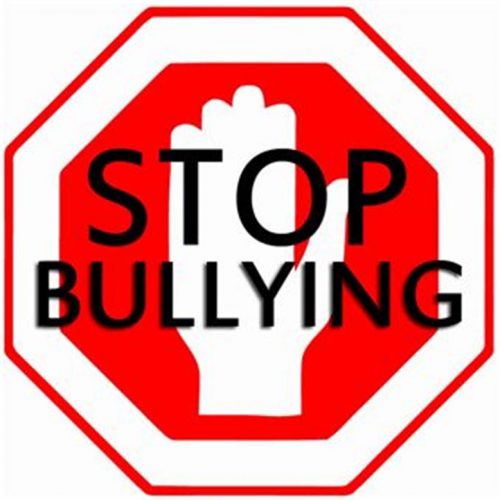
One of the most predominant dilemmas of teens today is bullying. There is an estimated 25% of students between the ages of 12 and 18 are being bullied. Not one school is unaffected by it. Professionals who have dealt with this issue through testing, examination, and therapy have personally seen the harmful effects that bullying has done on a teen’s life. Is bullying a mental disorder? Therapists believe that teenagers and other individuals who were bullied need someone to talk with about their broken emotions. If they have absentee parents or no one else to confide to, there are plenty of resources for them on the Internet that can at least help them temporarily.
Oversensitivity Or A Personal Experience?
So what is bullying? Does it just happen to an over-sensitive student, or is it something subjective?
Bullying is a deliberately violent action that is targeted to a specific person. It is carefully and intentionally planned to harm another. Most doctors and mental health professionals describe it as using force to abuse or instill fear on others. For someone to be considered a bully, he must have an aggressive character and must also possess some kind of inappropriate power, a deliberate act of harming another person, and must do this action repeatedly.
Additionally, bullying can be performed in different ways, the most typical of which include:
- Scaring his victims
- Spreading gossip
- Physical, sexual, and verbal harassment
- Deliberate rejection from peers and other groups
Cyberbullying is a type of bullying that is very rampant among teens these days. It is the intentional and repetitive harming of a specific person through the use of electronic gadgets like computers and smartphones. This is a more convenient way of bullying because the bully doesn’t need to face his victim. He will only need to make an inappropriate or profane post on social media to embarrass or harass him.

Bullying is something of a sensitive nature, but sometimes, this is being overused. It is necessary to clearly distinguish the difference between bullying and impolite or offensive behavior. Dealing with mean or offensive people is part of almost anyone’s life experiences. On the contrary, bullying is deliberate, repetitive, and dangerous, and it must be stopped immediately.
“Bullying is more than just being mean; it’s hurtful and cruel,” explained Raychelle Cassada Lohmann PhD, LPCS. “People who have been victimized by bullying carry with them the scars of the past.”
Cognitive Behavioral Therapy For Bullying Victims
CBT is the most widely used therapeutic approach for people who are suffering from anxiety, substance abuse, and suicide. This is because CBT helps people understand their thoughts and emotions better. The approach also provides individuals with instructions on how to manage their actions, emotions, and behavior.
With victims of bullying, these teens often do not realize their violent behaviors and destructive thoughts. CBT guides these victims into utilizing coping mechanisms and learning to replace the negative patterns into positive ones. One of the techniques that are very helpful for bullied teens is positive self-talk. With the help of the therapist, the teen recites positive traits and things about him, slowly breaking the insecurity, self-doubt, and fear. Eventually, he will successfully be able to control these negativities and will not let them destroy him. He will have only positive ideas about himself.
Other potential benefits of CBT for teens include:
- Managing fears
- Developing good communication skills
- Shifting negative patterns and behaviors
- Competently challenge violent thoughts
About The Bully
Bullies, particularly teens, and adolescents, have a higher likelihood of engaging in hazardous behaviors. Studies reveal that bullying has been associated with academic problems, drug or alcohol abuse, suicide, family problems, and mental health problems in bullying.

Therapists can deal with bullies through different means and strategies. They can communicate with these students personally, one-on-one. Being able to understand the teen’s family background and the academic situation can sometimes help find answers as to why he is bullying others. Mental health professionals can also educate the teen on how to know the certain emotions that he is experiencing – envy, anger, and insecurity – and provide them with constructive ways to work through these emotions. Finally, they can assist the bully in learning self-reflection and understanding how his impolite and offensive actions may destroy someone’s life forever.
On the other hand, perpetrators need the care and attention too, and mental health professionals can walk them through realizing how they affect others and what the long-term effects of their actions are. The therapist, counselor, or psychiatrist, can then work with them on developing values such as empathy and discipline.
“Kids engage in all kinds of behavior that isn’t a reflection of who they are as a person,” said Jamie Howard, PhD, Stress and Resilience Program director at the Child Mind Institute. She added, “They’re still figuring things out.” It is the professionals’ role to help the bully because the truth of the matter is, they are just kids as well.
To The Parents Of The Bully And The Bullied

Parents are encouraged to communicate openly with their teens, thus creating an environment that is warm and accepting. They should be aware of the warning signs of bullying from the victim and the bully’s sentiments.
“I believe in general check-ins with kids,” Kristin Carothers, PhD, said. “If you want your kid to talk to you, you have to go and talk to your kid.” Both of these types of teens need help, and the first defense against this dilemma is for the parents to be more responsible for them.